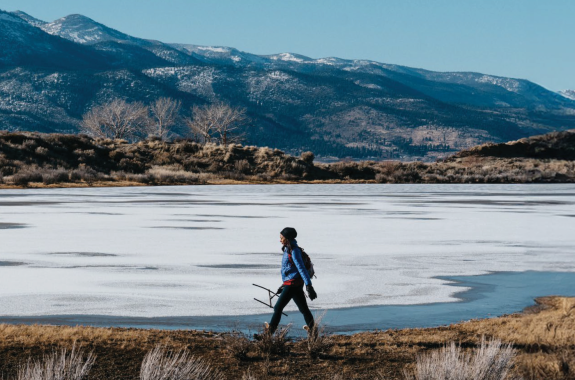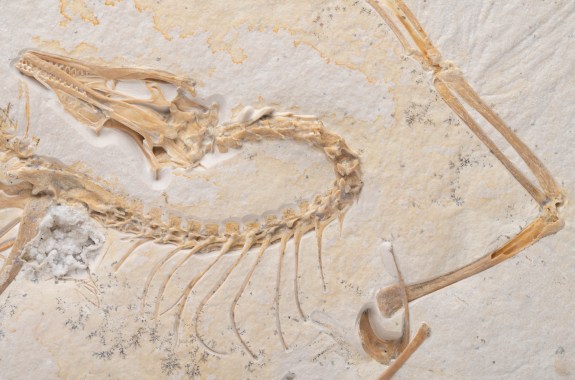Rasha Aridi is a producer for Science Friday. She loves stories about weird critters, science adventures, and the intersection of science and history.
While studying wildlife conservation at Virginia Tech, Rasha realized that she had way more fun talking about science than actually doing it. She then pivoted into journalism and has since written for outlets like Science, Smithsonian, and The Guardian. Before coming to SciFri, she worked for NPR’s Short Wave and Science Vs from Gimlet Media.
When Rasha isn’t nerding out about science, you can find her on an outdoorsy adventure, reading, or trying (and failing) to leash train her cat. Rasha is the inaugural Outrider/Burroughs Wellcome Fund Fellow.
The Bird Call That Music Producers Love To Use In Pop Songs
The eerie calls of the common loons have been heard in songs by Michael Jackson, Lady Gaga, Lana Del Rey, and more.
8:01
A Tiny Fern Has The Largest Genome Ever Discovered
The little fern from New Caledonia is just a few inches tall, and its genome has 160.45 billion base pairs—50 times more DNA than a human.
17:31
Indigenous Nations Are Fighting To Take Back Their Data
Indigenous data sovereignty is the idea that Indigenous Peoples should decide how to collect, own, and use their own data.
8:31
Common Loons Are Pop Music Icons
The eerie calls of the common loons have been heard in songs by Michael Jackson, Lady Gaga, Lana Del Rey, and more.
This Scientist’s Memoir Charts Her Journey From Acting To Astrobiology
In her new memoir, astrobiologist Dr. Aomawa Shields describes how a quest for life in the cosmos helped her find meaning on Earth.
17:15
Using A Lab On Wheels To Study Weed From Dispensaries
A van outfitted as a mobile laboratory helps scientists study how legal cannabis products affect users—without breaking the law.
17:31
Finding Purpose In A ‘Wild Life’
In her new book, Dr. Rae Wynn-Grant shares how her lifelong love for the natural world led her to become a nature TV show host.
12:02
Remarkably Well-Preserved Archeopteryx Specimen Unveiled
The Field Museum has unveiled a new specimen of Archaeopteryx, a species that may hold the key to how ancient dinosaurs became modern birds.
17:01
How Climate Change Is Changing Sports
Sports ecologist and author Dr. Madeline Orr discusses how climate change is affecting sports, from ski conditions to athletes’ health.
11:46
Science From Iowa’s Prairies
Science Friday is in Ames, Iowa, home to prairies, greater prairie chickens, and an array of wildlife.








